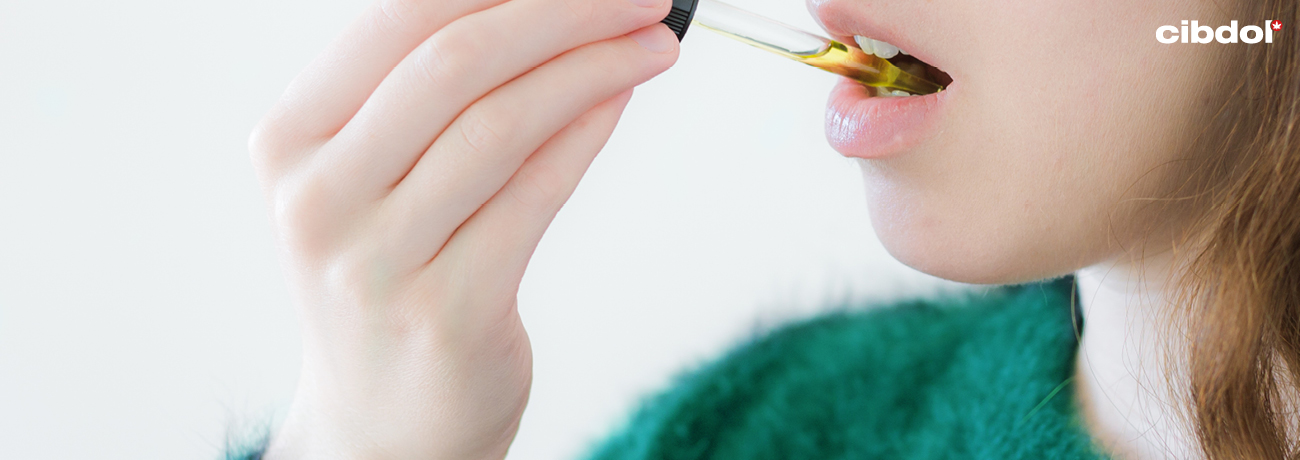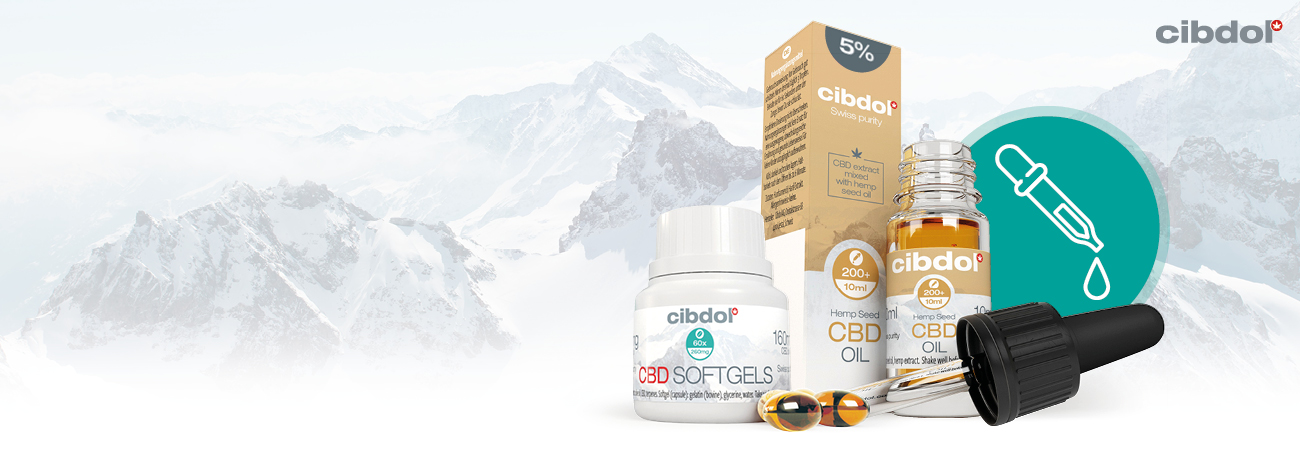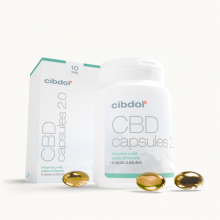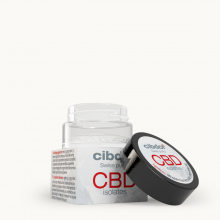How Much CBD Should I take?

Not sure how much CBD to take or which concentration to pick? Don't worry, it's perfectly normal to be confused by all the different options, and that's precisely why we've put together this step-by-step guide. Keep reading to find out what you need to know about dosing CBD.
Contents:
Dosing CBD: Where to start?
Although it's true that how much CBD you should take depends on numerous factors (which we’ll explain shortly), there are two fundamental principles you need to consider first.
A brand you can trust
The first vital consideration is picking a CBD brand you can trust. It's paramount you know exactly what it is you're taking, and that the concentration advertised matches what's in the bottle. Making CBD products is not a simple process, and you need to be confident your CBD oils, capsules, and supplements are free from unwanted additives and chemicals.
Thankfully, at Cibdol, all of our products are subject to rigorous testing, with the results published online and available to the public. Before trying CBD for yourself, you can view a detailed breakdown of the contents in each batch of CBD oil, including the exact concentration of CBD itself.
Start low and go slow
Whether you're entirely new to CBD or looking to try different products, the second crucial consideration is "start low and go slow".
The potential of CBD lies in its ability to work in harmony with the body, supporting that all-important state of balance. In this case, balance does not mean flooding the body with CBD, regardless of the compound's benefits. Instead, the approach is similar to other supplements or vitamins, with a "less is more" attitude.
To truly benefit from CBD, you need to listen to your body and adjust the concentration and/or frequency accordingly.
What factors affect CBD dosage?
With our key watch-outs covered, it's time to move on to the factors that affect how much CBD you’ll need to take. Remember, though, these factors are important, but they aren't definitive, so think of them as guidelines rather than rules.
Sex
Although research[1] is still in the preliminary stages, early indications suggest there is a potential difference in how CBD and other cannabinoids affect the sexes. It's believed that hormonal and behavioural differences between men and women could contribute to the overall impact of CBD.
The general summary is that cannabinoids may show a more profound physiological impact in men (food intake and energy balance), and a more profound behavioural impact in women (tension and mood disturbances). These findings are, of course, preliminary, so it's essential to find what works for you, and not write CBD off if you don't fall into the categories outlined above.
Height and weight
The simplest way to explain the impact of height and weight on CBD dosing is this—the more you weigh, the more you'll need to consume to feel the compound's effect.
CBD works by interacting with a network of receptors (the endocannabinoid system) that extends from head to toe. However, to interact, the compound has to travel around your body first. The rate and efficacy with which CBD is absorbed and ultimately metabolised by the body is thought to differ in heavier individuals versus lighter individuals.
You'll need to consider the other factors on our list in tandem with this guideline, but, generally speaking, you'll want to take a higher concentration or dose the greater your height and overall body weight.
Age
For our body to make use of CBD, or any cannabinoid for that matter, we need to break it down into usable parts. Our metabolism plays a crucial role in this process, helping split CBD into smaller pieces that have an easier time travelling around the body.
Although there are many reasons our metabolism slows down, age is a significant factor. When it comes to CBD, you may have to wait longer for the effects to show the older you are, so make sure to give your body the extra time it needs. On the opposite end of the scale, the younger you are, the faster your metabolism, so you may need to consume CBD more often to benefit.
Experience with CBD
The final crucial factor to be aware of when deciding how much CBD to take is your previous experience. If you've never tried CBD before, we recommend starting with a low concentration formula, taken once or twice a day.
While the potential side effects of CBD are incredibly mild, everyone reacts to the cannabinoid slightly differently, so it's important to gauge how you feel before diving headfirst into a bottle of 3000mg or 4000mg CBD oil, for example.
The same rules apply even if you've been taking CBD for a while. Always start slow, and build up to your desired dose. Even something as simple as switching from capsules to an isolate powder can dramatically change the impact CBD has on well-being—so take your time.
Choosing the right CBD product

Choosing the right CBD product is less about which one is “best” and more about which product suits your needs. CBD oil and CBD capsules both contain the same full-spectrum extract, but, with a few small changes, the effects of one can last significantly longer than the other.
CBD oil
CBD oils come in a variety of concentrations and carrier oils. For many people, the most noticeable difference in carrier oils is the taste. Olive oil is the closest to an authentic CBD taste, while hemp seed oil is much nuttier, and black cumin seed is somewhere between the two. Picking the flavour you like best will make your wellness journey far more enjoyable.
As for the effect of CBD oil, that depends on how you're consuming it. CBD oil ingested orally has to contend with the digestive system before it can start circulating your body. It'll take 30–60 minutes before you feel the effects, but they'll last much longer as a result.
However, if you drop CBD oil under the tongue, effects are not only more pronounced, but have a quicker onset too. The trade-off is that they don't last as long, so you'll need to think about why you're taking CBD oil, and whether you can keep dosing throughout the day.
CBD softgel capsules
Softgel capsules are what we mean when we say “the simple approach”—they're straightforward, easy to consume on the go, and each contain a uniform dose of CBD. Many people add CBD capsules to their supplement routine for ultimate convenience.
Despite the straightforward nature of CBD capsules, it takes a short while for them to take effect. Just like CBD oil taken orally, capsules have to pass through the digestive system before they start working. Fortunately, the effects of CBD capsules last several hours, so it's easier to fit them in around work or social activities.
CBD powder
CBD powder (also called CBD isolate or CBD crystals) is a highly concentrated version of CBD that's best suited to experienced users. You can add CBD crystals to food or sprinkle them directly under your tongue, but most experienced users prefer infusing them into homemade oils. They're not the most convenient option for everyday use, but if you're trying to avoid THC completely, the highly concentrated CBD formula is ideal.
Which CBD strength is best for you?
When we talk about the strength or concentration of CBD, we’re referring to how many milligrams of CBD a given product contains. If we take our 500mg CBD oil (10ml) as an example, it contains 2.5mg per drop, while our 1000mg oil contains 5mg. As the milligrams of CBD increases, so too does the potency.
If you assume an average daily dose of 3–4 drops, three times a day, that equates to approximately 30mg of CBD (based on our 500mg CBD oil). To give you some idea of the limitations, 160mg is seen as a recommended maximum daily amount.
This high tolerance for CBD is why we recommend starting with our 500mg CBD oil, as it represents a middle-ground between the stronger and more mild concentrations. Even at four drops, three times a day, you are still only consuming 30mg of CBD. Don't underestimate this compound though—in some cases, this may be enough.
It's important to stress that everyone's circumstances, and therefore their dosage, will vary. Give yourself several days on a regular dosage to see how you feel before increasing or decreasing accordingly.
To help you calculate the amount (mg) of CBD you'll be taking, you can use the following as a guide:
When and how often should you take CBD?
If you're trying CBD for the first time, it's a good idea to divide the recommended serving in half, and build your dose slowly over several days. Once you know how your body responds, you can increase or maintain as you wish.
Similar guidelines apply even if you're an experienced user. Any time you want to change the concentration, consumption method, or product, build the dose slowly and keep track of how much CBD you're taking using the guidance above.
As for how many times a day you should take CBD, well, that depends on why you're taking it in the first place, and how easy it is for you to consume. If you're taking CBD to benefit overall well-being, we recommended splitting your ideal daily dose across three servings. This approach provides a steady input of CBD.
However, there may be situations when you need the impact of CBD at a moment's notice. In these cases, a few drops of CBD oil taken under the tongue as needed throughout the day could provide support.
Either way, experiment with your dosing and timing until you find a schedule that’s not only easy to stick to, but provides maximum benefit to you.
Comparing Cibdol to other CBD brands
Once you have an idea of the dosage you want to start with, the next most common query is, "How do our recommendations compare to other brands?".
In truth, it is a nearly impossible question to answer. Not only does the ideal amount of CBD vary from person to person, but you'll also need to factor in the extraction method a company uses, their production techniques, and the purity of the final product. All of these attributes play a part in the influence of CBD, and directly affect how much you should consume.
Although we cannot answer for other brands, we can highlight what we take into consideration when producing our CBD oil. State-of-the-art equipment and highly specialised CO₂ extraction, alongside an expert team, ensure safe and seamless production from seed to bottle. The result is a range of products containing unadulterated CBD, independently verified by accredited laboratories.
Finding the best daily CBD dose
We’ve covered a lot of ground, and although dosage may seem like a daunting subject, the main takeaway is—listen to your body.
If we had to offer a bonus takeaway, it would be—try our CBD calculator.
Our CBD dosage calculator gives you a recommended daily amount by using details such as height, weight, gender, and your previous experience with CBD. Not only that, but it’ll even recommend a product that matches the details you enter.
You'll still need to continue fine-tuning your wellness experience on your own, but our guidelines can offer a good starting point whether you're a beginner, intermediate, or experienced CBD user.
If you'd prefer to first browse all of the CBD oils, capsules, supplements, and creams we have to offer, visit the Cibdol store. Or, if you're still trying to fine-tune your wellness journey, our CBD Encyclopedia has all the answers to popular queries.
[1] Fattore, L., & Fratta, W. (2010). How important are sex differences in cannabinoid action? NCBI. https://www.ncbi.nlm.nih.gov/pmc/articles/PMC2931555/ [Source]












